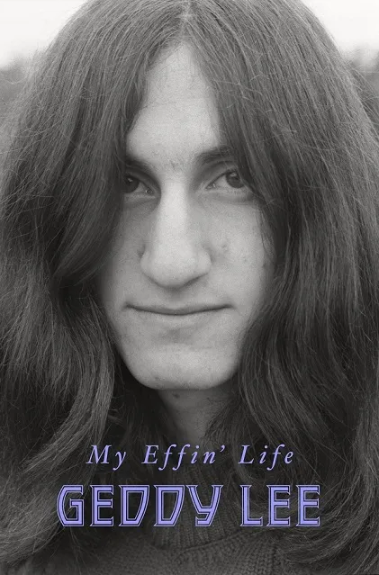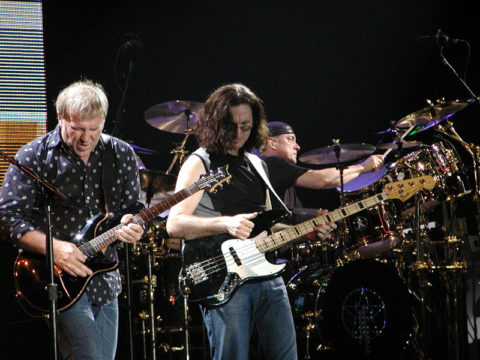The Line went into holiday mode during the Christmas season and into the first week of the new year. To fill in, the editors invited contributions on things the contributors were grateful for. Matt Gurney included his own piece, encouraged by Geddy Lee’s recent book My Effin’ Life (which I haven’t read, but hope to at some point):
Most Line readers probably know that I am an unrepentant Trekkie. Many of you will not know, but will not be surprised to discover, that I’m also a huge fan of Canadian rock band Rush. (These two things do often seem to go together, I’ve noted.) Last year, Rush bassist and lead singer Geddy Lee published a memoir, playfully titled My Effin’ Life.
Lee began to work on the memoir during the pandemic lockdowns, when we all suddenly found ourselves with a lot of time on our hands. Lee has been very open, both in his memoir and in his public comments, about the sad series of life events that led him to decide to begin writing his memoir in the first place.
The first, of course, was the effective end of Rush, back in 2015. Lee was eager to continue making music and touring. Rush lyricist and drummer Neil Peart, afflicted with some health issues and worried he could no longer perform at the standard he expected of himself, was eager to retire and spend more time with his new, young family. (Rush fans will know the awful story of what happened to Peart’s first family; it’s not necessary to recap it here, but I have absolutely kept it in mind when counting my own blessings.) Lee has been honest about being frustrated and even bitter about the end of Rush’s active career, but the news got worse, when, early in what was supposed to be the second act of Peart’s family life, the drummer was diagnosed with a cruel, terminal cancer. He died in 2020, almost four years ago to this day, after a long, private struggle, a struggle that Lee did his part to keep private. As if that wasn’t enough, not long after the death of his long-time friend and bandmate, Lee lost his mother, Mary Weinrib, a Holocaust survivor and a huge and active presence in Lee’s life until the very end. Weinrib died in 2021.
That’s a lot of loss packed into a short period, and the timing was awful. As COVID hit North America and began to rack up its victims, Lee, like so many of us, retreated inside his own home. While there, he had many ghosts and sorrows to keep him company, and it clearly weighed on him. So he began writing.
And what resulted was, perhaps to the surprise of even Lee, a happy memoir. A story of gratitude and laughter. A memoir full of funny stories, jokes, and things for which he was thankful.
As 2023 was drawing to a close, my father gifted me a ticket to a book reading at Toronto’s Massey Hall, featuring none other than Geddy Lee. The special surprise interviewer and cohost for the evening — though not really that much of a surprise — was Lee’s surviving Rush bandmate and friend of decades, guitarist Alex Lifeson. The two men, both now 70, sat down on the stage and spent the next couple of hours swapping stories, jokes and memories, happy and sad. They strongly hinted, but did not promise, that some version of Rush may reunite and perform again.
And that would be great. I would spend an unwise amount of money to go see that. But it wasn’t my excitement about possible opportunities to see some version of my favourite band perform again that began changing my perspective on 2023. It was just seeing the two of them on that stage. I’m sure these guys have had to deal with all the creeping aches and pains and a need for new contact lens prescriptions that I catalogued above. And I can guarantee you that they’ve both endured more personal loss than I have. But what I saw that evening was simply two old buddies, with 30 years on me, sitting on a stage and having a blast. And I realized that to these guys, something that happened when they were 40 would have seemed like a long time ago. Because they’d lived a lot since then.








